Over the last several weeks, we have had legislators in Washington and at various state levels talk about how to improve background checks that are conducted through the National Instant Criminal Background Check System (NICS) when an individual purchases a firearm.
Currently, there is a bill making its way through Congress known as the Fix NICS Act of 2017, commonly referred to as "Fix NICS," that is designed to close a major hole in current federal firearms legislation.
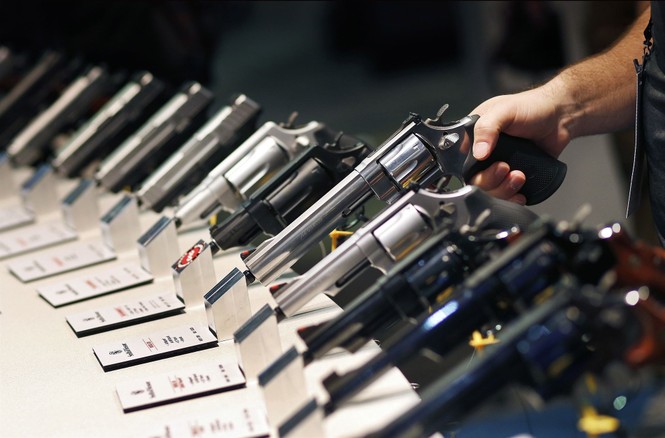
What Would the "Fix NICS" Bill Achieve?
If passed, the "Fix NICS" bill would amend the Brady Handgun Violence Prevention Act and make it mandatory for all federal agencies to report criminal convictions to the Attorney General so those convictions are put into the background check system.
According to the bill, the head of each federal department or agency would have to submit convictions to the Attorney twice a year. Convictions that took place from January 1 to June 30 would have to be submitted by July 31. Convictions that took place between July 1 and December 31 are to be submitted by January 31 of the following year.
In addition to semi-annual submissions, federal departments and agencies would be required to fill out a certification saying their records are accurate and up-to-date.
Recommended
The head of each federal department or agency would meet with the Attorney General to determine how to properly implement the program so that it can begin no later than one year after the bill is passed.
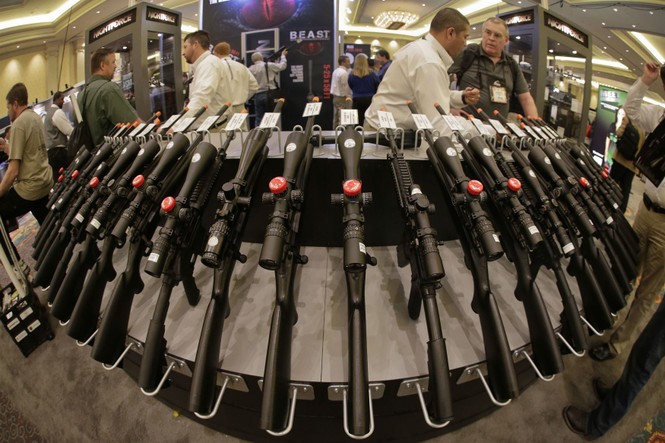
How Would Federal Agencies Be Held Accountable?
The Attorney General would publish the following information on the Department of Justice website:
• The name of each federal department or agency that has failed to submit the required certification that all record convictions are accurate and up-to-date.
• The name of each federal department or agency that has submitted the semi-annual certification but failed to certify compliance with the record submission requirements.
• The name of each federal department or agency that has failed to submit an implementation plan.
• The name of each federal department or agency that is not in substantial compliance with an implementation plan.
• A detailed summary of the data, broken down by department or agency, contained in the certifications submitted through semi-annual reporting.
• A detailed summary of the contents and status, broken down by department or agency, of the implementation plans.
• The reasons for which the Attorney General has determined that a Federal department or agency is not in substantial compliance with the implementation plan.
This information would also be submitted to both the Senate Appropriations and Judiciary Committees and the House Appropriations and Judiciary Committees.
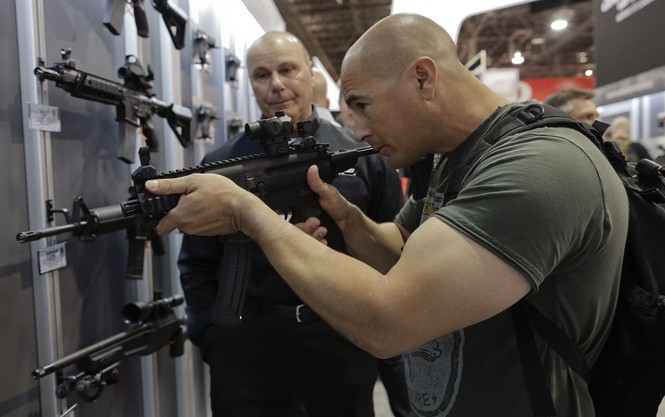
What Penalties Would Federal Agencies Face if They Fail to Comply?
If it is determined that a department head, who is a political appointee, is failing to comply with certification requirements and is not in substantial compliance with their agreed upon implementation plan, he or she will not be eligible for bonus pay (during fiscal years 2019 through 2022) until the department:
• Certifies compliance with the record submission requirements.
• Achieves substantial compliance with the agreed upon implementation plan.

How Would States and Indian Tribes Be Affected?
The states and Indian tribal governments would have similar requirements as federal agencies. Here's what the states would have to do within one year of the bill's passage:
• Verify the accuracy of their criminal conviction logs for the last four years.
• Establish a benchmark plan that lays out qualitative goals and quantitative measures.
• Develop an assessment, including estimated compliance costs.
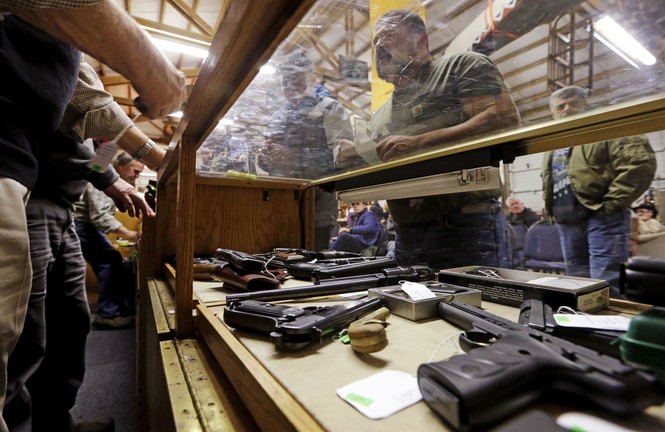
What Penalties Would States and Indian Tribes Face if They Fail to Comply?
At the end of each fiscal year, the Attorney General will determine what states have achieved substantial compliance with the benchmarks that were established. Here's what happens if those states or Indian tribal governments fail to adequately comply:
• The Attorney General will publish a list of states and Indian tribal governments who failed to comply with the law on the Department of Justice website. There will be a reason listed for why it was determined that the state or Indian tribal government failed to meet compliance, along with a description of the types and amounts of records that have not been submitted.
• If a state or Indian tribal government is determined to be out of compliance, they must immediately correct the records in question and remove the record from the Department of Justice website and any other location where the record was published. This must be done no later than 3 days after the determination has been made.
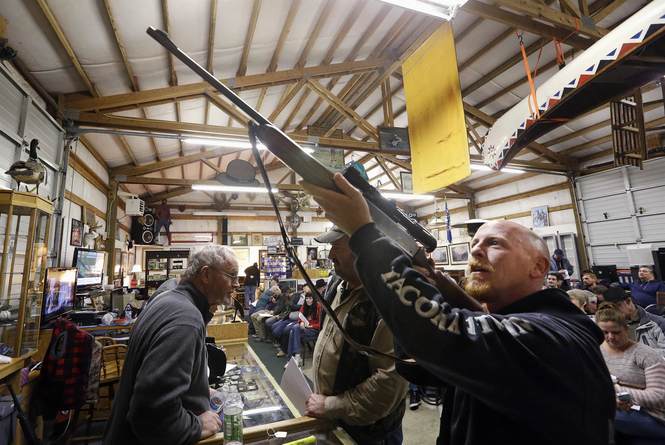
What Incentives Would States and Indian Tribes Have to Comply?
The biggest motivation states and Indian tribal governments would have to comply is funding.
From the bill:
For each of fiscal years 2018 through 2022, the Attorney General shall give affirmative preference to all Bureau of Justice Assistance discretionary grant applications of a State or Indian tribal government that received a determination of substantial compliance under subsection (c) for the fiscal year in which the grant was solicited.

What Are Different Gun Groups Saying About This Bill?
The "Fix NICS" bill seems to be something that both Second Amendment supporters and gun control advocates can come together on.
The National Rifle Association has pushed NICS reform for a number of years. In fact, in early 2016, the gun rights group shared a video of NRA's CEO and Executive Vice President, Wayne LaPierre, explaining why they're in favor of reforming the background check system:
The Giffords gun control group gave positive praise to the Fix NICS bill when Sen. John Cornyn (R-TX) introduced the legislation.
Here's what the group's Executive Director, Peter Ambler, said in a press release:
The background check system is only as strong as the records it contains, so this bill is a step in the right direction. It’s an important signal to states and federal agencies that Congress means business when it comes to ensuring a strong, effective background check system. And it demonstrates that Congress can come together to legislate solutions to gun violence. Even in the aftermath of the worst shooting in American history, the gun lobby wanted to weaken gun safety laws and move us backward. This proposal strengthens our laws and moves us forward. Of course, with the great magnitude of the gun violence problem we face, there is still a lot more to do and a long fight ahead, but today we thank Senator Murphy and Senator Cornyn for their courage to work across party lines to introduce legislation that will improve public safety.
Everytown for Gun Safety encouraged their followers to send thank you letters to Sens. John Cornyn (R-TX) and Chris Murphy (D-CT) for introducing the "Fix NICS" legislation.
They put together the following letter to make it easier for constituents:
Dear Lawmaker --
Thank you for co-sponsoring S. 2135, a bill to strengthen the National Instant Criminal Background Check System (NICS) and enforce existing federal law.
This bipartisan bill is an important first step to improve submission of records into the background check system and keep guns out of the hands of domestic abusers and convicted felons.
Given the horrific mass shootings we've witnessed over the past few months and the gun violence that kills more than 90 Americans each day, we must do something. Thank you for supporting this important legislation to strengthen our background check system.
Everytown for Gun Safety and Moms Demand Action also released a statement from President John Feinblatt about the bill, which basically said that while the bill is a good start it doesn't go nearly far enough:
If all Congress does is pass the Fix NICS Act, then lawmakers will have failed to meet this moment and do their job. Across America, students, educators, mothers and fathers are demanding that Congress finally get serious and meet this moment with robust action to reduce gun violence. This bill is a small step forward. Congress needs to do much more, starting with legislation to require criminal background checks on every gun sale — supported by 95 percent of Americans.
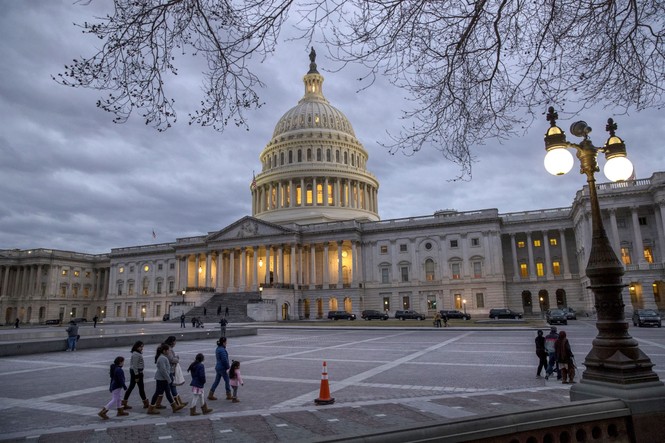
What Legislators Support The "Fix NICS" Bill?
The bill was introduced by Sen. John Cornyn (R-TX) and has bipartisan support from 49 cosponsors.

Sen. John Cornyn (R-TX) took to the Senate floor to explain why he brought forward the Fix NICS legislation:
I want to bring up one last topic that we've been discussing this last week, and that is ways we can prevent mass shootings from happening in the future.
I've introduced a bill that’s already passed the House that would address this problem, and I believe would save lives in the future.
We’ve added ten new cosponsors this week, bringing the total number to 50 cosponsors for this legislation.
Yesterday the President hosted an amazing meeting of 17 members of Congress on a bipartisan basis and brainstormed about other things we might be able to do. But right now -- right now – Fix NICS is our best and only option to act in response. It's supported by the president, the majority and minority leaders are cosponsors, and it's supported by gun groups like the N.R.A. and Everytown for Gun Safety, which are at opposite ends of the ideological spectrum when it comes to the Second Amendment. But as I said, this bill has 50 cosponsors here in the Senate and is ready for action, having already passed the House of Representatives.
I pledged then that I would never face another grieving family with empty hands, saying we could have done something that might have saved your child's life or loved one's life by fixing the broken background check system.
There are other things that we might do, but as we all know, the threshold for actually passing legislation is 60 votes.
I'm not going to go home and tell my constituents in Texas I didn't do my very best and didn't do something meaningful that would save lives in the future, and Fix NICS is the best way to do that and do that now.
Although President Trump supports the legislation, he has said he would like to add comprehensive gun reform to the bill:
Sen. John Cornyn: But we need to get started on things that only we can do, which would be this background check system. People have other ideas. They ought to offer those ideas. I'm not sure all of them will pass, but in the past, we've -- we've -- we've acquiesced to failure, and have not done things that we know were within our power to accomplish, like the Fix NICS bill. So I would just like to recommend to you, and to colleagues here that we get that done, and we build on it. We don't stop there. We build on it, and -- because none of us want to look these families in the face in the wake of another mass shooting and say, "We failed to do everything within our power to stop it."
President Donald Trump: And, John, Fix NICS has some really good things in it. But it would be nice if we could add everything on to it. And maybe you change the title, all right? The U.S. Background Check Bill, or whatever. But your bill is really good, and really important, having to do with a certain aspect. But maybe we could make it much more comprehensive, and have one bill, instead of 15 different bills that nobody knows what's happening.
Cornyn: If we can get 60 votes for it, Mr. President, I'm all for it.
So, what do you think of the "Fix NICS" bill?


